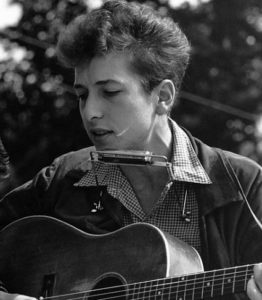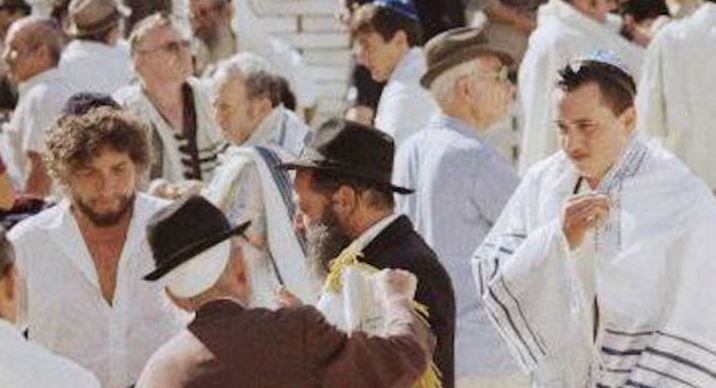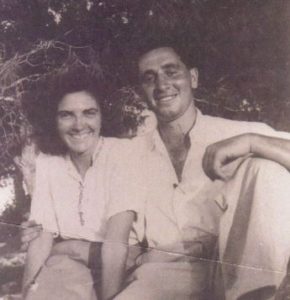First Musician to Win a Nobel Prize
Robert Allen Shabbatai Zisl Zimmerman (b. 1941) was born in Minnesota, the grandchild of Ukrainian- and Lithuanian-Jewish immigrants. Listening to the radio as a child, Zimmerman fell in love with music. In high school, he formed a number of bands, mostly doing covers of Elvis Presley. While studying at the University of Minnesota, Zimmerman regularly performed at clubs and coffeehouses near the campus, introducing himself as “Bob Dylan” (after the poet, Dylan Thomas). He soon dropped out of school and moved to New York City. It only took about a year for him to get signed by Columbia Records. Though his first album didn’t do very well, and he was nearly dropped from the record label, Dylan’s second album fared much better. With this album, Dylan showed that he was not only a musician and songwriter, but a talented poet as well. The Beatles described his music as “incredibly original and wonderful”. By 1963, Dylan was tremendously popular, and had become an important part of the civil rights movement, too. He went on to produce an unbelievable 37 albums (so far), selling 120 million copies. His “Like a Rolling Stone” was listed as the greatest song of all time on multiple occasions, and his hand-written lyrics for this song recently sold at an auction for a record $2 million. His 2009 album made him the oldest artist ever to debut at number one on the Billboard 200 chart. Since 1988, Dylan has been on a “Never Ending Tour”, consistently performing around 100 concerts every year, and continuing to perform regularly to this day. Dylan also wrote a novel, published six books of his drawings and paintings, as well as a bestselling autobiography that was nominated for the National Book Award. He has won twelve Grammy Awards, an Oscar, a Golden Globe, and a Presidential Medal of Freedom. Last week, it was announced that he received the Nobel Prize for Literature – the first musician to do so. It has been said that Dylan inspired countless musicians “from Mick Jagger to Eminem”, while President Obama once admitted that “There is not a bigger giant in the history of American music.” TIME Magazine placed him on the list of the 100 Most Important People of the 20th century. Many have argued that Dylan’s lyrics should be studied in schools, and indeed, courses on Bob Dylan are now offered at a number of universities around the world.
Chag Sukkot Sameach!
Words of the Week
Most people worry about their own bellies, and other people’s souls, when we all ought to be worried about our own souls, and other people’s bellies.
– Rabbi Israel Salanter




